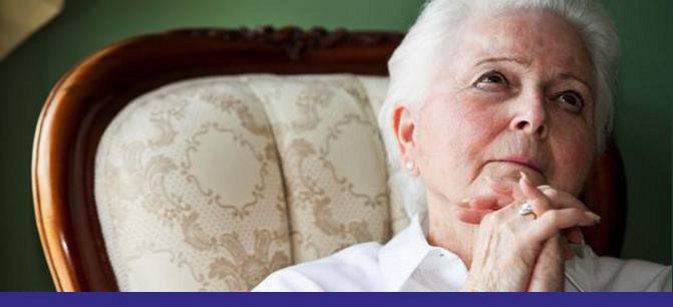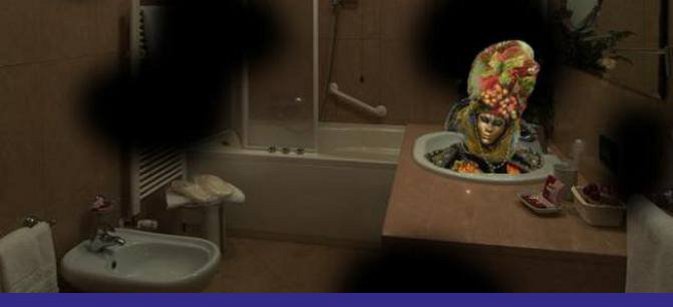
Witnessing at close range a loved one going through CBS – especially when it’s experienced as distressing - can really be hard on the spouse, family member or close friend. The significant other can intuit that their loved one is experiencing hardship and yet as an onlooker may feel out of their depth to assist. This can be intensified when health care services focus their attention on the loved one while the needs of the significant other (emotional and practical) tend to be overlooked.
Someone close to me has CBS. How can I help?
Many who begin to experience CBS are frightened not only by what they see but even more so by what it all means. Many fear the worst: that they’re losing their grip on reality. This can announce troublesome thoughts and emotions as they consider the implications for their life (eg. worrying loved ones, threatened independence, negative conclusions drawn by friends, doctors and society in general).
- Being supportive, non-judgmental and empathic cannot be understated. These qualities can be the bedrock to helping the person living with CBS get through what can feel like a very isolating and fearful experience.
- Take an interest in their phantom visions and slip in a CBS explanation. For example, if someone close to you says, "I'm seeing bunches of flowers all over the walls", consider responding with something like this: "I don't see the flowers myself... but that is the visual part of your brain producing them. Isn't your brain amazing? Can you describe the flowers to me?" This approach has two benefits: (i) it shows you're genuinely interested in learning more about their experiences and encouraging them to open up more and (ii) you're able to explain that the images they see are coming from within their own brain and that's why others don't see them.
- Encourage the person to reach out and try to touch whatever it is they're seeing. If they are fearful to do so, then perhaps suggest they use a white cane or a walking stick. When the person is able to get immediate experience of their hand or the cane going straight through the image (where nothing is felt) this can provide important confirmation that the life-like images they see are actually phantoms: they have no substance.
- Provide reassurance to the person close to you that they’re not 'going bonkers'. This can be incredibly comforting. Reinforcing that they are not losing their mind but instead the symptoms are a peculiar side-effect of vision loss can reduce anxiety and fear.
- Inform them that CBS is actually quite a common experience for those who lose sight to eye disease or injury.
- Let them know that they don’t need to deal with this on their own as there are opportunities to connect with others going through something similar. This equally applies to the carer. (See Peer support, Online support as well as ‘Carer supports available’ below.)
- If the person close to you finds the phantom images annoying, disturbing or unwanted, then encourage them to try various strategies to counter their presence (see CBS Treatments).
- Suggest to them discussing their CBS with their treating doctor to explore ways to better manage the symptoms. They’re also welcome to contact the Foundation if they would like to talk to someone further about their experiences in a safe space.
- If none of the above seems to help, let the person know they could consider seeing a medical practitioner (eg. ophthalmologist, neurologist) to explore a pharmacological treatment. There are some people who experience dramatic relief from their symptoms when prescribed medication for CBS. However, keep in mind that no specific drug has been shown to effectively treat CBS symptoms in most people. Why it works for some but not the majority is unknown.
Care(r) supports available
- Consider joining the CBS online community. It is open to both those directly experiencing the syndrome as well as loved ones or carer(s). Click here to learn more.
- Contact the Foundation to discuss the situation further. Request our guide to caring for someone living with CBS.
- Taking care of yourself
Watching a loved one in distress from their CBS symptoms can also take its toll on you. Recognise that you have your own limits and to reach out for support if it’s becoming exhausting. Draw upon family, friends or neighbours for help. If there’s no one to turn to, carer support services exist in every Australian state and territory. Make use of them. Often these services are free and they may well offer a chance for you to restore some balance in your life. Remember, the quality of your caring is affected by your own state of being.
National Carer Gateway: 1800 422 737
Press 1 to be redirected to your local carer support service
Press 2 for the national counselling service








